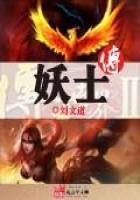One day, about noon, two men drove up to the ranch, alighted, hitched, and came in to dinner; standing and general invitations being the custom of the country. One of them was a great San Antonio doctor, whose costly services had been engaged by a wealthy cowman who had been laid low by an accidental bullet. He was now being driven back to the station to take the train back to town. After dinner Raidler took him aside, pushed a twenty-dollar bill against his hand, and said:
"Doc, there's a young chap in that room I guess has got a bad case of consumption. I'd like for you to look him over and see just how bad he is, and if we can do anything for him.""How much was that dinner I just ate, Mr. Raidler?" said the doctor bluffly, looking over his spectacles. Raidler returned the money to his pocket. The doctor immediately entered McGuire's room, and the cattleman seated himself upon a heap of saddles on the gallery, ready to reproach himself in the event the verdict should be unfavourable.
In ten minutes the doctor came briskly out. "Your man," he said promptly, "is as sound as a new dollar. His lungs are better than mine. Respiration, temperature, and pulse normal. Chest expansion four inches. Not a sign of weakness anywhere. Of course I didn't examine for the bacillus, but it isn't there. You can put my name to the diagnosis. Even cigarettes and a vilely close room haven't hurt him.
Coughs, does he? Well, you tell him it isn't necessary. You asked if there is anything we could do for him. Well, I advise you to set him digging post-holes or breaking mustangs. There's our team ready. Good-day, sir." And like a puff of wholesome, blustery wind the doctor was off.
Raidler reached out and plucked a leaf from a mesquite bush by the railing, and began chewing it thoughtfully.
The branding season was at hand, and the next morning Ross Hargis, foreman of the outfit, was mustering his force of some twenty-five men at the ranch, ready to start for the San Carlos range, where the work was to begin. By six o'clock the horses were all saddled, the grub wagon ready, and the cow-punchers were swinging themselves upon their mounts, when Raidler bade them wait. A boy was bringing up an extra pony, bridled and saddled, to the gate. Raidler walked to McGuire's room and threw open the door. McGuire was lying on his cot, not yet dressed, smoking.
"Get up," said the cattleman, and his voice was clear and brassy, like a bugle.
"How's that?" asked McGuire, a little startled.
"Get up and dress. I can stand a rattlesnake, but I hate a liar. Do Ihave to tell you again?" He caught McGuire by the neck and stood him on the floor.
"Say, friend," cried McGuire wildly, "are you bug-house? I'm sick--see? I'll croak if I got to hustle. What've I done to yer?"--he began his chronic whine--"I never asked yer to--""Put on your clothes," called Raidler in a rising tone.
Swearing, stumbling, shivering, keeping his amazed, shining eyes upon the now menacing form of the aroused cattleman, McGuire managed to tumble into his clothes. Then Raidler took him by the collar and shoved him out and across the yard to the extra pony hitched at the gate. The cow-punchers lolled in their saddles, open-mouthed.
"Take this man," said Raidler to Ross Hargis, "and put him to work.
Make him work hard, sleep hard, and eat hard. You boys know I done what I could for him, and he was welcome. Yesterday the best doctor in San Antone examined him, and says he's got the lungs of a burro and the constitution of a steer. You know what to do with him, Ross."Ross Hargis only smiled grimly.
"Aw," said McGuire, looking intently at Raidler, with a peculiar expression upon his face, "the croaker said I was all right, did he?
Said I was fakin', did he? You put him onto me. You t'ought I wasn't sick. You said I was a liar. Say, friend, I talked rough, I know, but I didn't mean most of it. If you felt like I did--aw! I forgot--Iain't sick, the croaker says. Well, friend, now I'll go work for yer.
Here's where you play even."
He sprang into the saddle easily as a bird, got the quirt from the horn, and gave his pony a slash with it. "Cricket," who once brought in Good Boy by a neck at Hawthorne--and a 10 to 1 shot--had his foot in the stirrups again.
McGuire led the cavalcade as they dashed away for San Carlos, and the cow-punchers gave a yell of applause as they closed in behind his dust.
But in less than a mile he had lagged to the rear, and was last man when they struck the patch of high chaparral below the horse pens.
Behind a clump of this he drew rein, and held a handkerchief to his mouth. He took it away drenched with bright, arterial blood, and threw it carefully into a clump of prickly pear. Then he slashed with his quirt again, gasped "G'wan" to his astonished pony, and galloped after the gang.
That night Raidler received a message from his old home in Alabama.
There had been a death in the family; an estate was to divide, and they called for him to come. Daylight found him in the buckboard, skimming the prairies for the station. It was two months before he returned. When he arrived at the ranch house he found it well-nigh deserted save for Ylario, who acted as a kind of steward during his absence. Little by little the youth made him acquainted with the work done while he was away. The branding camp, he was informed, was still doing business. On account of many severe storms the cattle had been badly scattered, and the branding had been accomplished but slowly.
The camp was now in the valley of the Guadalupe, twenty miles away.















